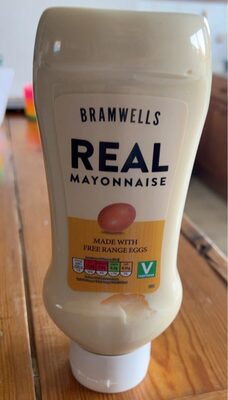
Barcode: 4088600555577
Real Mayonnaise
HALAL
📝 Reason: All ingredients in the product are derived from Halal sources or are synthetic and not on the Haram ECode list. The product does not contain any meat or meat by-products, and there are no Haram ingredients or ECode additives present. Therefore, the product is considered Halal.
🏷️ Category: Condiments, Sauces, Mayonnaises
📄 Certificates: Vegetarisch
Ingredients:
Details
Is Real Mayonnaise Halal? A Comprehensive Look
Many consumers are becoming increasingly mindful of the Halal status of their food products. One common question arises: Is Real Mayonnaise Halal? According to our research, Real Mayonnaise is declared to be halal. This certification is essential for many who are following Islamic dietary laws.
Understanding Halal Certification
To classify any product as Halal, it must adhere to specific guidelines. Primarily, the ingredients must not contain any animal by-products or substances derived from Haram sources. Furthermore, the manufacturing processes should avoid contamination with non-Halal items.
Ingredients in Real Mayonnaise
Real Mayonnaise contains the following ingredients:
- Rapeseed oil
- Water
- Pasteurized free range egg
- Spirit vinegar
- Pasteurized free range egg yolk
- Salt
- Sugar
- Concentrated lemon juice
- Flavorings (contains mustard)
- Stabilizer
- Xanthan gum
Analyzing the Ingredients
Let’s delve deeper into each ingredient to verify their Halal status:
1. Rapeseed Oil
Rapeseed oil is a plant-based oil widely used in culinary applications. It is generally considered Halal. [Source](https://www.islamicfinder.org/news/what-is-halal-food-a-guide-to-muslim-dietary-laws/)
2. Water
Water is vital for life and is universally accepted as Halal.
3. Pasteurized Free Range Egg
This ingredient is sourced from free-range hens and is permissible if derived from Halal sources. [Source](https://www.halalrc.org/images/Research%20Material/Literature/Guide%20to%20Halal%20Foods.pdf)
4. Spirit Vinegar
Spirit vinegar is Halal as long as it is not derived from wine or any Haram means. It’s essential to ensure the vinegar’s origin is legitimate.
5. Pasteurized Free Range Egg Yolk
Similar to the whole eggs in our mayonnaise, the yolk being from Halal sources is acceptable. [Source](https://www.halalrc.org/images/Research%20Material/Literature/Guide%20to%20Halal%20Foods.pdf)
6. Salt
Being a natural mineral, salt is universally considered Halal.
7. Sugar
Typically derived from sugarcane or sugar beets, sugar is classified as Halal.
8. Concentrated Lemon Juice
This ingredient is derived from lemons and is permissible for consumption.
9. Flavorings (Contains Mustard)
As mustard is plant-based, it is generally considered Halal.
10. Stabilizer
If derived from plant-based sources or produced synthetically, stabilizers avoid issues of non-Halal contamination.
11. Xanthan Gum (E415)
Xanthan gum, a microbial fermentation product, is widely regarded as Halal. It is used primarily to stabilize food products. [Source](https://www.foodchemadditives.com/e415-xanthan-gum)
Conclusion
After a detailed analysis, it is evident that all the ingredients in Real Mayonnaise are either plant-based, synthetic, or derived from Halal sources. There are no meat or meat by-products included, nor are any Haram E-codes present.
Real Mayonnaise not only provides an excellent taste but also aligns with the dietary requirements of those seeking Halal options. Whether you’re preparing a sandwich, salad, or dip, you can be sure that this mayonnaise is an acceptable choice with full confidence in its compliance with Halal standards.
Continue enjoying your favorite condiments while adhering to your dietary preferences. Happy cooking!
